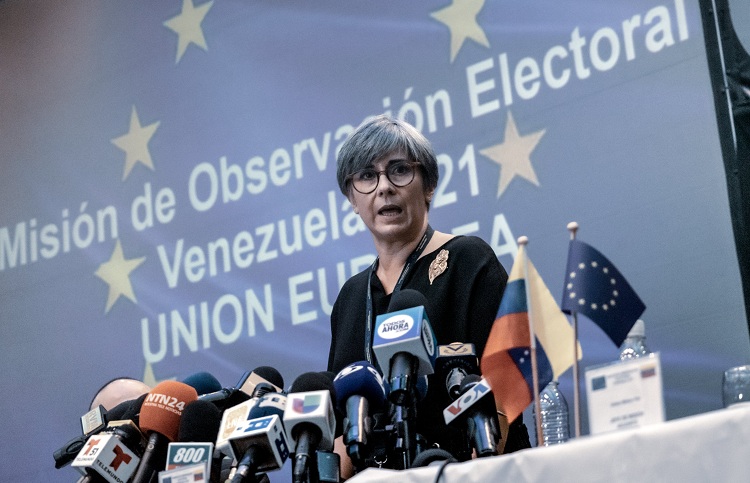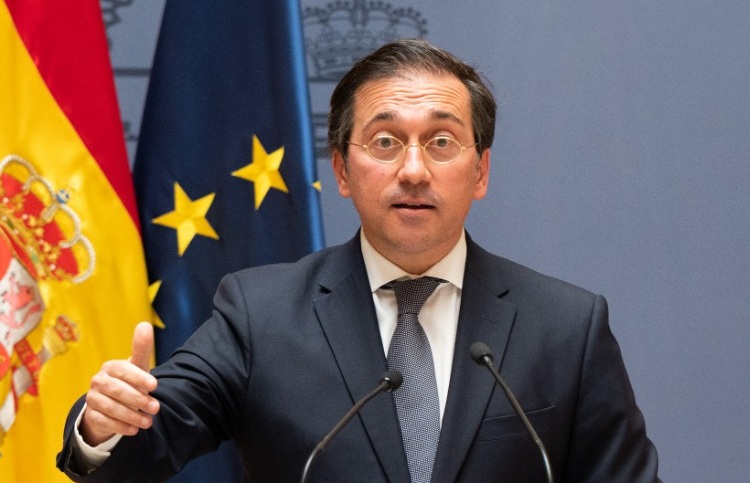Eduardo González
The Foreign Affairs Council of the European Union will address today in Brussels the outcome of the municipal and regional elections held last November 21 in Venezuela, as well as the conclusions of the EU electoral observation mission, whose members brought forward yesterday their departure from the country after Caracas’ decision not to renew their visas.
European foreign ministers are meeting today in the EU capital with several items on the agenda: relations between the EU and Africa, Central Asia, the situation in Belarus, Varosha (Cyprus) and Ethiopia and the recent elections in Venezuela. A working lunch with the Deputy Prime Minister and Minister of Foreign Affairs of Qatar and a position paper on the Common Security and Defense Policy (CSDP) Civilian Track Pact are also on the agenda.
Regarding Venezuela, European ministers will focus on the assessment of the outcome of the elections and the findings of the EU election observation mission. The inclusion of the Venezuelan elections on the agenda has come about at the request of the Spanish government, Foreign Affairs ministry sources told The Diplomat, without providing further details.
The report of the 130-member EU Election Observation Mission (EU-EOM) to Venezuela, led by Portuguese Socialist MEP Isabel Santos, revealed some “improvements” with respect to previous elections but also denounced “important structural deficiencies”, such as “arbitrary disqualifications of candidates”, lack of judicial independence, “non-adherence to the rule of law”, “extensive” use of State resources during the electoral campaign and unequal access to the media.
The initial objective of the EU Mission was to remain in the country until this very Monday, December 13, but the Venezuelan Government decided earlier this month not to renew their visa, so the Ministry of Foreign Affairs and the Venezuelan National Electoral Council (CNE) urged its members to leave the country within a maximum period of one week. The mission left Venezuela yesterday, although it maintains its intention to publish a final report with recommendations to improve future electoral processes and to return to Venezuela at the end of January to deliver this final text to President Nicolás Maduro.
The sudden order of the Caracas regime came in the midst of the tension generated by the annulment of the victory of the opposition Freddy Superlano in the State of Barinas in favor of Argenis Chaves -brother of the late President Hugo Chavez, born in this province- and after Nicolas Maduro accused the observers of being “spies”.
Based on the conclusions of the EU Mission, the Spanish Ministry of Foreign Affairs issued a communiqué three days after the elections in which it warned that “the regional and municipal elections held on November 21 in Venezuela have not complied with democratic expectations”.
The Minister of Foreign Affairs, José Manuel Albares, reiterated these same criticisms personally to his Venezuelan counterpart, Félix Plasencia, during their meeting on November 26 in Santo Domingo on the occasion of the meeting of Ibero-American foreign ministers preparatory to next year’s Ibero-American Summit in the Dominican Republic. The Venezuelan Ministry of Foreign Affairs issued at the same time a communiqué in which it expressed its “disappointment” at the “value judgments” of the Spanish Government.







